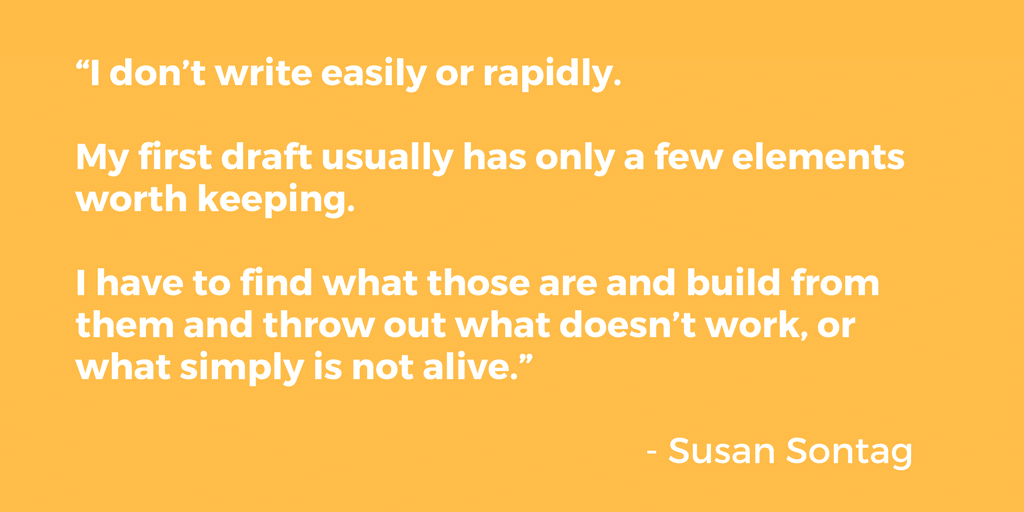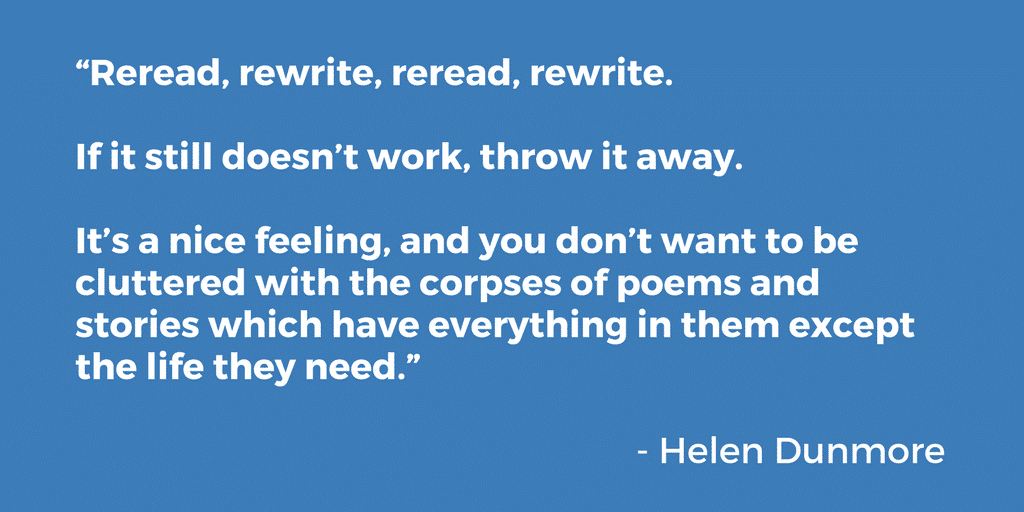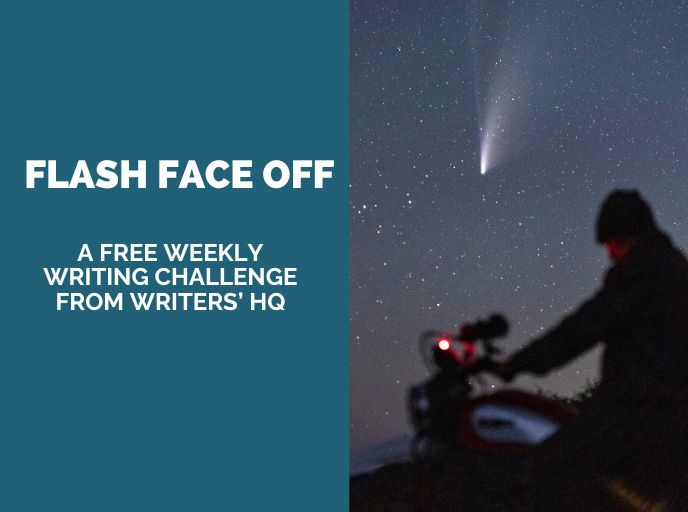There comes a time in every writer’s life when you have to make a big decision about whether to give up on a piece of work or keep slogging on. To write, or not to write, that is the agonising question. Maybe you’ve been scribbling away at your WIP for aaaaaaages. Maybe years. You’ve probably invested a whole load of brain effort and angst and sobbing into it. But maybe progress has been getting progressively slower. And now, every time you open up the file you do a little sigh, read a bit, sigh some more, and close it down again…
Perhaps you have a general idea of what should happen but you just can’t get the words out of your head and onto the page. Perhaps you started strong but it’s just… kinda… stalled. Perhaps you have a rock solid plan but every time you try to write it comes out wrong. Perhaps you have no frickin’ idea what’s actually broken – or even if it can be fixed – but no matter which way you look it it, you’re just not satisfied.
So. The impossible decision. Should you give it up? Should you take a break? Should you soldier on? And how long are you prepared to keep working on something you’ve lost faith in?
There’s no easy answer (I mean, really, when is there an easy answer to a writing problem?) but just because you ain’t feelin’ it does NOT mean you’ve failed. There’s no failure in writing. Only development, improvement, and learning. And no writing is wasted writing.
The first question to ask is:
WHY ARE YOU WRITING THIS STORY?
- Because you’re excited about it (even if sometimes you’re not)?
- Because you’re passionate about the characters and the plot (even if some aspects are still a bit wibbly)?
- Because you can clearly visualise how you want it turn out (even if you’re not quite there yet)?
- Because the idea just won’t leave you alone (even if you’re not actually making much tangible progress)?
- Because there are some bits that you’re really pleased with (even if there are also a whole load of shitty bits)?
Despite the parentheses, all these answers are pretty positive. And even though you may not be doing a whole load of actual writing, the fact that you’re still thinking about your story, still mulling things over, still imagining it in your head, still making plans, still keeping that little creative spark alive, means that your story probably still has ‘legs’ and you still possess the determination to get it finished. It just may take some time.
If, however, you’re only writing it because it’s a trendy, commercial idea, or because someone else convinced you that you should write it, then your second question should be:
DO YOU REALLY WANT TO DO THIS?
To write anything – to finish any piece of work – you have to actually want to do it, despite the fact that it’s damn hard work and sometimes it drives you mad and you’re riddled with doubt and guhhhhh why can’t it just be perfect first time?! Chill your boots. All these feelings are well within the normal bounds of writing angst. Put them aside and try to look at your project objectively.
Just because your WIP is challenging does not mean it’s time to give up. It means it’s time to raise your game, pull up your socks, have another cup of tea and figure out a plan. Maybe you need to take a break and work on something else. Maybe you need to go back to the plotting stage and re-outline your story. Or maybe you need to focus on editing, or get some decent feedback from a beta reader, or hone your skills with a creative writing course (ahem).
Consider also that when you feel like you’re stuck (we don’t believe in writer’s block, so you can stop that right now) it’s often NOT about the story. That blocked feeling might well be down to your own perception of your writing ability and/or imposter syndrome and/or fear of failure.
If you’re unhappy with your first draft – guess what? – that’s because it’s still raw and unrefined and in development. It’s not meant to be perfect yet. It’s not meant to be anywhere NEAR perfect. Your early drafts are merely the fundamental building blocks for your story. Let them be shit. Trust in the power of redrafting and revision. And know that you are not the first writer to feel this way:

If you’re desperate for validation and over-reliant on praise to keep you going – guess what? – you’re setting yourself up to be disappointed, especially if you start workshopping an early draft that ^^ see above ^^ isn’t really in any shape to be shared yet. Writing can often feel like an unrewarding vocation because you’re constantly working on spec, with no guarantee that your work will ever be published, acknowledged, or admired. But all the more reason to draw upon your own steely self-belief and down ‘n’ dirty determination to keep going – so don’t pin all your dreams on the opinions of other people.
If you’re super impatient for it to be finished and just_can’t_stand the fact that this is taking so long, then – guess what? – writing is sloooooow. I mean, sure, some people are able to whack out a first draft in three weeks and write a bestselling novel every year, but a) the reality of that seems highly unlikely to anyone who’s ever actually tried writing a book, b) they’re probably writing full time and have the resources to focus solely on their story, and c) quick writing does not necessarily = good writing. In fact, most writing is more like a proper stinky cheese – it gets better the longer you leave it to fester.
You want proof? How d’ya like these apples?
- Audrey Niffenegger took four years to write The Time Traveler’s Wife, and a further seven to write her next book, Her Fearful Symmetry – debunking the assumption that writers get quicker as they go.
- Michael Crichton spent eight years steeped in research when writing Jurassic Park. Eight whole years of research, dude.
- Margaret Mitchell took a decade to write Gone with the Wind AND it was the only novel she ever bloody wrote.
- Tolkien spend twelve years writing and rewriting and painstaking appendix-compiling between The Hobbit and The Lord of the Rings.
- To Kill a Mockingbird was published in 1960 and Go Set a Watchman was (rather controversially) published in 2015 – a whole fifty-five years later.
- Ezra Pound took a staggering FIFTY-SEVEN YEARS to write his gigantic poem The Cantos (and actually never completed it – it was published in its final unfinished state after his death).
Your novel won’t cease to exist if you put it aside for a while. Or a long while. Or a decade. Sometimes it takes time to truly see a story, and process how best to tackle it. For example, I’ve been working on my current WIP for… oh… a mere <mutter-mutter-couple-of-years> and in that time its central characters have changed drastically: from an elderly couple to a middle-aged couple, to a mother and teenage son to a mother and tween daughter to an eleven-year-old girl, whose mum now only appears in flashbacks. The setting has also become unrecognisable, shifting from a transatlantic boat voyage to a block of flats in central London. I wrote fifty-thousand-frickin-words of backstory before I realised where my story actually started. That’s half a novel of writing that probably won’t even make it into the final draft. Ain’t gonna lie, it’s been a pretty painful process. I’ve wanted to give up, several times. This time last year I had no idea what I was doing and where it was going and was convinced I’d failed.
BUT.
I didn’t give up. I gave it a break, instead. I actually pulled a Junot Diaz and went off and did an MA (the ultimate procrastinatory action). I took the pressure off the wordy part of things and I replotted and I outlined and I researched and I tinkered and I mused and I pondered but I didn’t start writing again for at least six months. And it turned out that time and distance were exactly what I needed. It’s totally not what I planned and it’s not how I wanted the process to go, but looking back, there’s no way I could have written this particular story back while I was struggling. Now I’m in a different place, I’ve had the space to look at it objectively, and I can see what’s wrong (and right) with it. And I’m back on track. Boom.
On the flipside, I’ve also made the Big Scary Decision to shelve a novel that just wasn’t working. It took me <drumroll please> a whole ten years to write and edit, and I even got to the point where an agent was interested in it, and then… ah then… I realised it actually wasn’t any good. I mean, there were parts of it that were decent. I loved my characters, the premise was interesting, the writing wasn’t too shabby – but it just wasn’t what I’d envisioned it to be, and I knew that in order to make it as good as I intended it required ripping to pieces and starting from scratch again. And… ugh, I just didn’t have it in me. Not then. Not now. Probably not for a long while yet. I do intend to go back to it someday, but for now it’s sitting pretty on my hard-drive – no strings or guilt attached. In fact, ‘letting it go’ was kinda liberating and exciting, because finally I could move on. And that gigantic mothersucker of a shelved novel taught me so, so, so, so, SO much about writing:
- It taught me that pantsing an entire novel with no clear idea of where you’re going next is, admittedly, a thrilling way to write, but it can also leave you with a plot that resembles regurgitated spaghetti Bolognese that you then need to spend LITERAL YEARS untangling and scrubbing off the floor.
- It taught me that writing is really redrafting.
- It taught me that no matter how much you adore following your characters around, you also need an ironclad plot to guide them in the right direction or else you find yourselves up the proverbial creek sans paddle.
- It taught me that I was not prepared to settle for less than something I could be really proud of.
- It taught me that I wasn’t the same person as the one who started writing the book (ten long years’ll do that to you), and maybe the new me needed to write something different.
- It taught me that it’s okay to ‘give up’ on a story, because I knew I could do better.
- The whole process I went through is pretty accurately summed up by this quote:

I mean, don’t literally ‘throw away’ your stories. Shut them lovingly in a drawer. Tuck them away in a file in the depths of your documents folder. Store them in the cloud until the end of time. Because shelving a piece of work doesn’t mean that it’ll never see the light of day. Maybe you can chop it up and turn it into a bunch of short stories. Maybe you can adapt it into something else. Maybe you can cherry-pick phrases or characters or descriptions to use in your next WIP. NEVER get rid of your old drafts. You never know when it’ll suddenly be the right time to resurrect them…
So, if you’re wavering, struggling, and drowning in the fear of failure over your stalled WIP, I have one final question. And it’s the only writing decision that really matters – so choose your path wisely:
DOES YOUR STORY STILL HAVE LIFE IN IT?
YES! IT LIVES! I’M GONNA FINISH THE HECK OUT OF THIS THING!
Okay, good. Keep writing it then. But maybe give yourself a break. Give yourself time. Give yourself the space to research and rework and redraft and find out how to turn this pile of words into the story you dreamed of.
NO. IT’S DEAD. I’M DONE. I NEVER WANT TO LOOK AT IT AGAIN!
Okay. Are you sure? Really? Okay. Then take a deep breath, give that ol’ sense of failure a swift boot in the arse and put it aside. Be free! Start something new! Think about the writing lessons you’ve learned along the way and put them to good use on your new WIP. And get excited about what you’re going to write next.
No failure. No fear. Just write.





